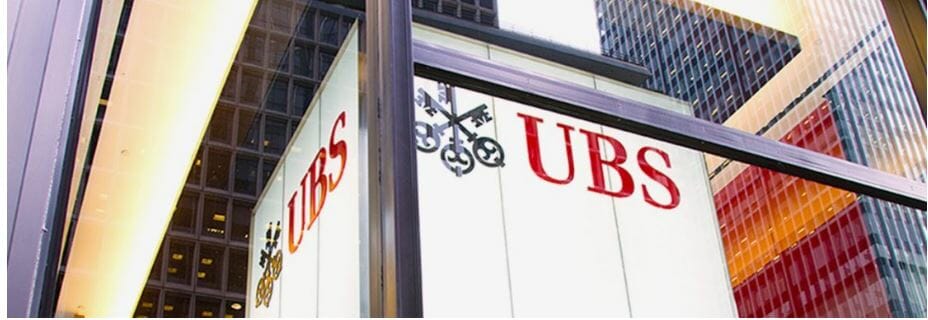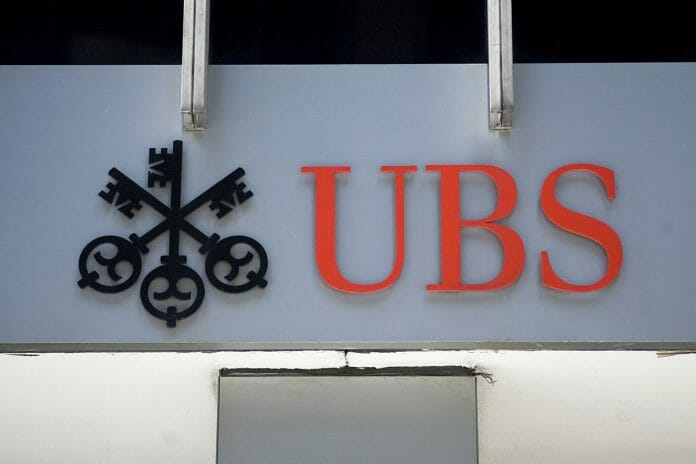
UBS has made significant progress in 2018 towards meeting its ambitious targets in sustainable investing, philanthropy, and business sustainability, while further reducing its environmental footprint.
The bank continues to set standards for the wider industry by retaining its leadership in the Dow Jones Sustainability Indices (DJSI), the most widely recognised sustainability rating, with the MSCI ESG Research upgrading the bank to AA in its latest sustainability ratings, placing it in the top three of its primary peer group. Sustainalytics, the ESG ratings and research analysts, also ranked UBS as an industry leader, while CDP confirmed the bank’s position on its Climate A List.
Axel A. Weber, UBS Chairman emphasises: “We see a strong business rationale for catering to the growing importance of and demand for sustainability. We have set ourselves the goal to create long-term positive value for clients, employees, investors and society. Our goal carries with it a clear responsibility for taking a leading role driving change towards a positive future.”
UBS’s approach is particularly apparent in sustainable investing. The bank is developing sustainable and impact investing products, which combine a financial return with a “societal return.”
As of 31 December 2018, total SI assets represented USD 1,110 billion and core SI assets USD313 billion, constituting 35.8% and 10.1% of UBS total invested assets respectively. In 2018, UBS’s core SI assets, involving ESG integration as well as a range of sustainability strategies, increased 72%, up from USD182 billion in 2017, mainly driven by the integration of ESG factors into UBS Asset Management’s investment research process across a significant portion of assets managed within their active capabilities.
The bank directed USD1.9 billion of client assets into SDG related impact investments, making further progress to reaching a goal of USD5 billion in commitments by end of 2021.
The bank believes the transition to a low-carbon economy is vital and is focused on supporting clients in preparing for success in an increasingly carbon-constrained world. UBS has reduced its carbon-related assets to USD2.7 billion, down from USD6.6 billion in 2017, while climate-related sustainable investments increased to USD 87.5 billion from USD74 billion in the previous year.
UBS also decided to further tighten standards on coal financing transactions. The bank is committed to not providing project-level finance to new coal-fired power plants globally, to only supporting financing transactions of existing coal-fired operators (which are more than 30% reliant on coal) who have a transition strategy in place that aligns with a pathway under the Paris Agreement, or the transaction is related to renewable energy.
UBS significantly reduced lending and capital raising to the coal mining sector and cut support to coal-mining companies engaged in mountain-top removal operations.
Christian Bluhm, Group Chief Risk Officer, says: “It’s our priority to protect our clients’ assets and UBS from the materialisation of risks. This includes climate-related risks since sustainable financing is high on our agenda.
“We already limited our risk appetite for carbon-related assets and have further tightened our standards on coal-financing transactions while growing our exposure in climate-related sustainable asset classes.”
UBS Optimus Foundation has helped clients use their wealth to drive positive and sustainable social change for children.
In 2018, the Foundation’s work helped improve the wellbeing of 2.8 million children globally, up from 2.1 million in 2017. The bank offers clients unique access to social and financial innovation and philanthropic advise, as well as tailored program design, co-founding and co-development.
The bank’s environmental program has a history of more than 30 years and encompasses investments in making real estate more sustainable.
UBS has set quantitative targets related to environmental indicators since 2006. In line with the climate strategy, which was established in 2006 and expanded over the past decade, the bank aims to source 100% of its electricity from renewable sources by 2020.
This will contribute to reducing greenhouse gas footprint by 75% compared to the 2004 level. In 2018, UBS reduced energy consumption by 12% compared to 2016 and 25% compared to 2012.
The bank is making progress toward achieving its goal of 40% of employees volunteering by the end of 2020, with 40% of them skills based. In 2018, UBS had 25,256 employees volunteering, giving 197,807 hours to social causes which benefited 343,121 young people and entrepreneurs across the regions in which we operate.









